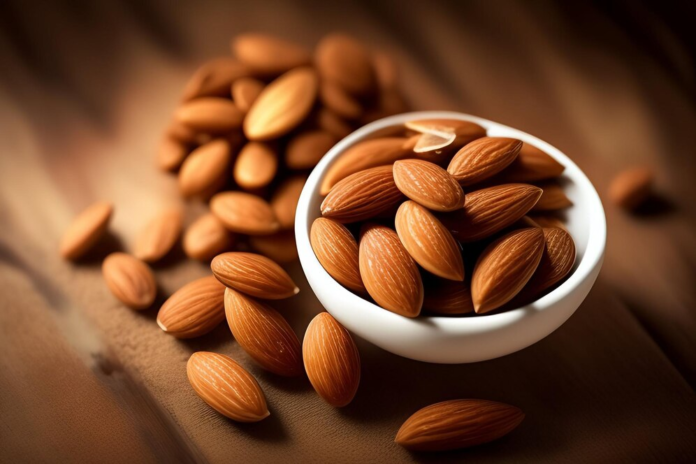Introduction
The world of avian companionship is vast and diverse, and as bird enthusiasts, it’s natural to wonder about expanding the culinary horizons for our feathered friends. Among the many questions that arise, a common one is, “Can birds eat almonds?” In this exploration, we delve into the intricacies of providing almonds to birds, balancing the delights of a tasty treat with the importance of avian health.

Are Almonds Safe for Birds?
Before delving into the nutritional aspects, the safety of almonds for birds is a paramount consideration. While almonds can be a nutritious addition to a human’s diet, the same might not hold true for our feathered companions. Birds have unique digestive systems, and some foods that are safe for humans can pose risks to them.
Nutritional Value of Almonds for Birds
Almonds are known for their rich nutritional profile. Packed with healthy fats, proteins, vitamins, and minerals, they offer a wholesome snack for humans. However, birds have different dietary requirements. While almonds do contain beneficial nutrients, it’s essential to assess whether these align with a bird’s nutritional needs.
Types of Birds That Can Consume Almonds
Bird species exhibit diverse dietary preferences. Some birds are natural foragers, while others have more specialized diets. Understanding which birds can safely consume almonds helps tailor our approach to treat offerings. Small parrots, such as budgies and cockatiels, may enjoy almond treats, while larger parrots might find them more manageable.
Potential Risks and Precautions
As responsible bird caretakers, it’s crucial to be aware of potential risks associated with feeding almonds to birds. One significant concern is the risk of choking, especially if almonds are not appropriately prepared. Additionally, the high-fat content in almonds might pose digestive challenges for certain bird species.
Best Practices for Feeding Almonds to Birds
For bird enthusiasts keen on incorporating almonds into their pets‘ diets, adhering to best practices is vital. Almonds should be offered in moderation, ensuring they are chopped or sliced to prevent choking hazards. Monitoring birds for any adverse reactions is crucial to identifying potential issues early on.
Bird-Friendly Almond Recipes
For those interested in going beyond simple almond treats, creating bird-friendly recipes can be a delightful endeavor. Mixing almonds with other bird-safe ingredients can result in tasty and nutritious treats. However, it’s essential to ensure that all components are safe for avian consumption.
Toxic Almonds and Birds
While almonds are generally safe for birds, it’s imperative to highlight the importance of avoiding toxic almonds. Bitter almonds, in particular, contain cyanide and can be lethal to birds. Educating bird caretakers on identifying and steering clear of toxic almond varieties is crucial for the well-being of our feathered friends.
Common Questions About Birds and Almonds
In navigating the realm of bird nutrition, common questions often arise. Addressing these queries can dispel myths and provide clarity on the relationship between birds and almonds. From portion sizes to frequency, understanding the nuances ensures that bird enthusiasts make informed decisions.
Conclusion
In conclusion, the question of whether birds can eat almonds requires a nuanced approach. While almonds offer nutritional benefits, the key lies in moderation, preparation, and consideration of individual bird species. Responsible feeding practices, coupled with an understanding of potential risks, contribute to the well-being of our avian companions. As bird enthusiasts, let’s embark on a culinary journey that aligns with the health and happiness of our feathered friends.


